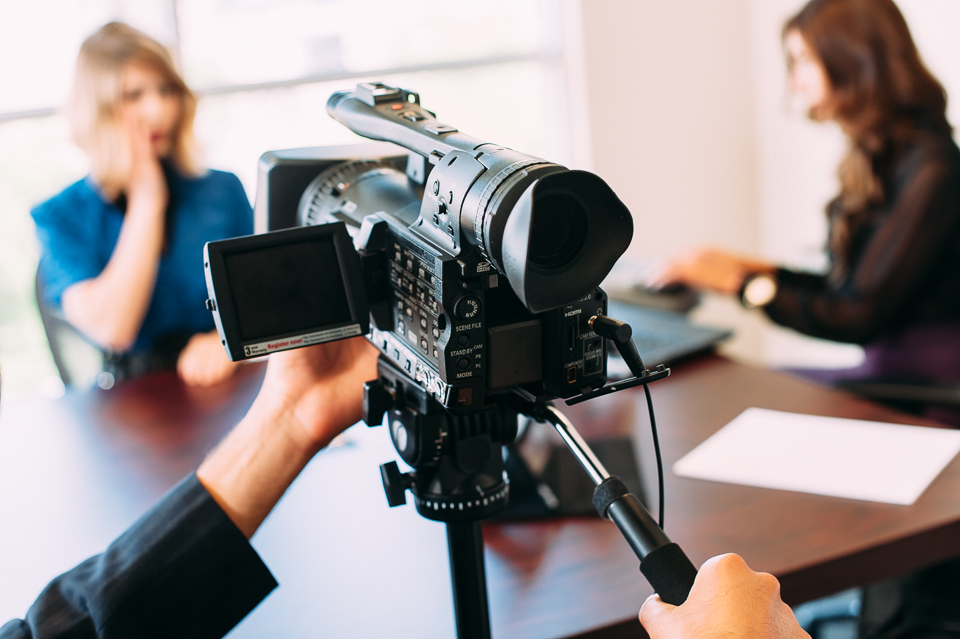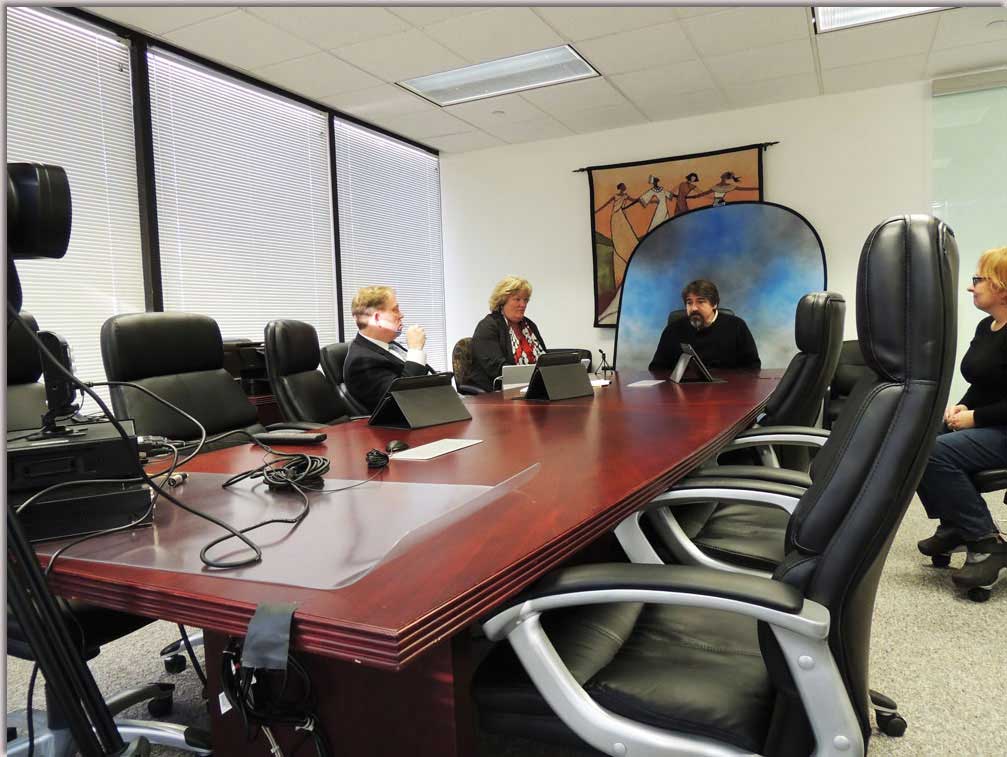The Relevance of Lawful Video Depositions in Modern Legal Services: What You Need to Know
Lawful video depositions have come to be necessary in today's legal landscape. They provide a multidimensional view of witness testaments that standard transcripts merely can not match. By catching both spoken and non-verbal communication, these depositions improve the general understanding of a witness's trustworthiness. The efficiency of video clip depositions pivots on various variables, including conformity with legal criteria and best practices. Discovering these aspects discloses their true value in contemporary legal services
What Are Legal Video Depositions?
Legal video clip depositions serve as a crucial device in the litigation process. They include recording witness statements in a video clip layout, capturing both non-verbal and spoken interaction. This method allows attorneys to document the temperament, expressions, and reactions of witnesses, supplying a richer context for the testimony. Generally carried out in a regulated atmosphere, these depositions are led by attorneys that ask inquiries while a court press reporter documents the dialogue. The resulting video can be essential for trial prep work, as it enables attorneys to analyze the credibility of witnesses and refine their strategies. Additionally, legal video depositions can be made use of in different legal contexts, ranging from civil conflicts to criminal situations. The acoustic and aesthetic components of video depositions improve the presentation of evidence, making it a vital element in the contemporary legal landscape. Overall, they contribute considerably to the performance and efficiency of legal proceedings.

Benefits of Video Clip Depositions Over Traditional Methods
Video depositions offer numerous benefits contrasted to standard techniques of taking witness statements. One significant benefit is the capability to capture both aesthetic and audio components, giving an extra detailed document of the witness's declarations. This double layout improves clearness and enables legal professionals to reference specific subtleties throughout test preparation. Additionally, video depositions help with remote involvement, making it much easier for witnesses who might be not available for in-person appearances due to geographical restraints or health and wellness issues.Moreover, video depositions can speed up the total deposition process, reducing the moment and expenses connected with traveling and logistics. They also improve access, as recorded depositions can be easily shared amongst legal teams and referenced at any moment. This convenience contributes to better case administration and preparation. On the whole, video depositions stand for a contemporary, effective method to collecting witness statements, straightening with the evolving requirements of the legal career.
The Role of Body Movement and Tone in Testimonies

In legal video depositions, body movement and tone play vital functions in communicating a witness's credibility and dependability. Nonverbal signs can provide insights into a witness's emotional state, affecting how their testimony is viewed. Recognizing the impact of these aspects is crucial for lawyers and jurors alike when assessing the integrity of a testament.
Nonverbal Interaction Insights
While verbal communication is often highlighted in legal statements, nonverbal hints such as body language and tone play a vital function in communicating integrity and feeling. Observers of depositions might keep in mind that a witness's stance, motions, and faces can greatly influence perceptions of reliability. As an example, regular eye contact may signify self-confidence, while staying clear of look might suggest deceit or pain. Likewise, the tone of voice-- its quantity, pitch, and speed-- can pass on feelings of sincerity or uncertainty. Lawful specialists should be attuned to these nonverbal signals, as they usually supply vital context that complements talked words. Understanding these nuances can improve the effectiveness of depositions and affect the outcome of lawful proceedings.
Psychological Tone Impact
The psychological tone communicated throughout legal testimonies greatly influences how a witness is regarded. Body language, singing inflections, and faces play important duties in shaping the story of a testimony. A witness showing confidence with steady eye get in touch with and a tranquil tone can instill a feeling of integrity and engagement. Alternatively, signs of stress and anxiety, such as fidgeting or an unsteady voice, may cause skepticism regarding their account. The nuances of psychological expression can influence the analysis of truths, making it crucial for legal experts to identify see post these signs. In video depositions, the acoustic and visual elements integrate, stressing the significance of emotional tone in communicating genuineness and reliability within the lawful process.
Trustworthiness and Trustworthiness
An important variable in developing credibility and credibility during statements hinges on the witness's body language and tone of voice. Onlookers typically depend on non-verbal signs-- such as eye call, stance, and motions-- to assess a witness's sincerity. For instance, a witness who keeps eye call and displays open body language may be perceived as even more trusted and truthful than one that stays clear of eye call or shows up shut off. Furthermore, tone of voice plays a necessary duty; a stable, calm tone can enhance the integrity of the statement, while variations in pitch or quantity might raise doubts. Inevitably, the combination of body language and singing tone substantially affects how a witness's declarations are gotten and interpreted in a lawful context.
Finest Practices for Carrying Out Video Depositions
Conducting video clip depositions calls for cautious preparation and execution to guarantee a clear and efficient presentation of statement. First, it is essential to choose a silent, well-lit place to reduce interruptions and secure optimal video clip top quality. The devices should be checked ahead of time, consisting of electronic cameras, microphones, and lighting, to prevent technical problems during the deposition.Next, events included should review the layout and procedures in advance, making sure that everyone recognizes their functions. The deponent ought to be briefed on the procedure, including exactly how to react clearly and concisely.Additionally, preserving a specialist demeanor throughout the session is vital. This consists of avoiding speaking over each other and verifying that all inquiries are routed properly. It is important to record the deposition in a format that enables for simple playback and review, protecting the stability of the statement for future usage.
Legal Factors To Consider and Compliance Issues
Just how do legal factors to consider and conformity issues influence the effectiveness of video depositions? Lawful professionals should browse a complicated landscape of try this guidelines, ensuring that video depositions abide by jurisdictional guidelines and criteria. Compliance with laws concerning privacy, permission, and videotaping methods is important. For instance, acquiring explicit permission from all parties involved is essential to stay clear of legal repercussions.Additionally, the admissibility of video proof in court can pivot on compliance with step-by-step needs. Guaranteeing that the devices used meets technical standards is also vital, as low quality can weaken the deposition's reliability.Moreover, lawyers need to know any type of particular state legislations that govern video clip depositions, as these can vary considerably. Failure to resolve these considerations can not just endanger the honesty of the deposition yet also affect the overall case method, ultimately influencing the customer's legal end results.
Just How Video Clip Depositions Effect Jury Assumption
While video depositions can act as effective tools in lawful process, their influence on court perception is substantial. The visual and auditory elements of video recordings provide jurors with a much more thorough understanding of witness behavior, credibility, and emotional reactions. This multimedia strategy can enhance the jurors' ability to assess the dependability of testament contrasted to conventional text-based transcripts.Moreover, video see this website clip depositions allow jurors to observe body language, tone of voice, and face expressions, every one of which can influence their interpretation of the witness's declarations. The presence of a witness on display can humanize them, fostering empathy and link, which may guide jurors' viewpoints. Alternatively, a witness that shows up undependable or evasive on video clip might cause negative understandings that influence a jury's choice. Inevitably, the vibrant nature of video clip depositions plays a vital function fit how jurors translate proof and reach their verdicts.
The Future of Video Clip Depositions in Legal Practice
As developments in innovation remain to reshape the lawful landscape, the future of video clip depositions is poised for significant development. Innovations such as synthetic knowledge, digital reality, and enhanced video clip conferencing devices are anticipated to enhance the deposition procedure and boost access. Lawful experts may utilize AI-driven analytics to analyze witness trustworthiness and situation stamina much more effectively.Moreover, the integration of virtual truth could allow courts to experience immersive simulations of depositions, supplying deeper context and understanding. Furthermore, the trend toward remote depositions is likely to linger, using better versatility for clients and attorneys alike.As remote work comes to be increasingly stabilized, video depositions will likely come to be standard method, decreasing prices and time restraints connected with typical approaches. On the whole, these technical improvements promise to improve the efficiency, efficiency, and accessibility of video depositions in lawful practice, ultimately changing exactly how lawyers get ready for trial.
Regularly Asked Concerns
Just How Much Do Lawful Video Depositions Commonly Cost?

Can Video Depositions Be Used in Any Kind Of Sort Of Instance?
Video depositions can be used in numerous kinds of instances, including civil, criminal, and household regulation. Their flexibility permits attorneys to existing witness testimonies properly, adapting to the details needs of various legal circumstances.
What Equipment Is Needed for a Video Clip Deposition?
To carry out a video clip deposition, vital equipment includes a top quality cam, microphone, illumination, and a reputable recording tool. Additionally, a computer system with editing software application may be essential for post-production and formatting the last video.
For how long Does a Typical Video Clip Deposition Last?
A normal video deposition lasts in between 2 to 4 hours, depending upon the complexity of the situation and the variety of inquiries posed. Prolonged sessions might take place, yet breaks are generally included for individual comfort.

Are Video Clip Depositions Admissible in Court?
Video clip depositions are normally acceptable in court, offered they follow legal standards and regulations of proof. Their usage improves clarity and preserves witness statement, aiding in the judicial procedure during hearings and trials. Lawful video depositions have actually ended up being essential in today's legal landscape. Additionally, legal video depositions can be used in various legal contexts, ranging from civil conflicts to criminal situations. Furthermore, video clip depositions facilitate remote engagement, making it simpler for witnesses that may be unavailable for in-person appearances due to geographical constraints or health issues.Moreover, video clip depositions can expedite the general deposition procedure, decreasing the time and prices associated with traveling and logistics. Ensuring that the devices made use of meets technical standards is also important, as poor quality can threaten the deposition's reliability.Moreover, attorneys have to be aware of any type of details state laws that regulate video clip depositions, as these can differ greatly. Additionally, the pattern towards remote depositions is likely to continue, offering higher flexibility for attorneys and customers alike.As remote job becomes progressively stabilized, video depositions will likely end up being standard method, lowering costs and time constraints linked with standard techniques.